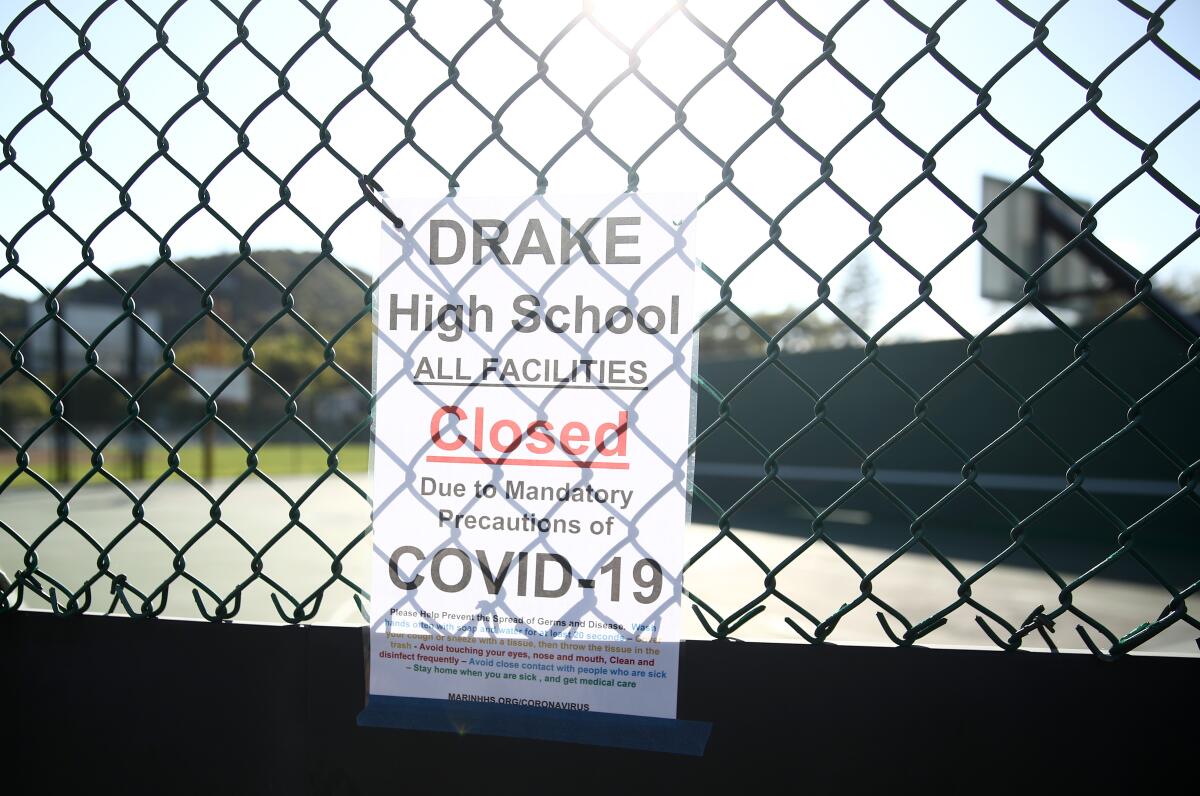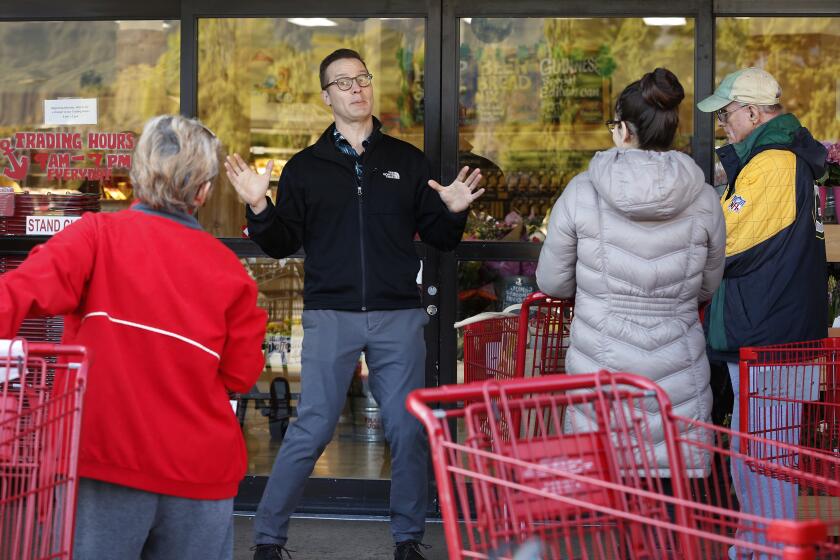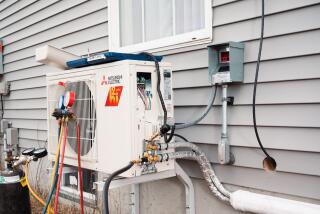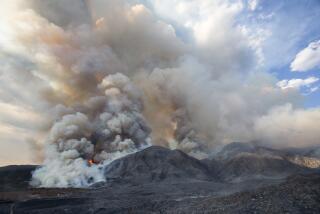Opinion: Coronavirus shutdowns can’t save the planet from climate change. Here’s what could

- Share via
Last week, Reuters published a rather remarkable look at how coronavirus shutdowns are affecting climate emissions. The piece claimed 2020 could see the “biggest fall in carbon emissions since World War Two,” when gas rationing was the norm. More specifically, it quoted Stanford professor and Global Carbon Project chair Rob Jackson saying global carbon output could fall by 5% this year.
To the untrained ear that certainly sounds like a small bit of good news in an otherwise brutal time of human misery. But buried further down in the piece was the unsettling fact that a recent U.N. report found that emissions have to drop 7.6% per year — for decades — to stave off the worst effects of climate change.
Much of the industrialized world is stuck inside under quarantine. The global economy is collapsing. Armies of influencers are trapped in their homes taking selfies with their dogs instead of thot squatting in Bali. And the world isn’t even going to meet its climate targets. For this year alone!
I called Jackson for further clarification.
He was quick to point out that emissions tracking is incredibly tricky, and it’s still too early to know for sure exactly what reductions will result from the coronavirus shutdown — particularly as it relates to greenhouse gases like methane. However, we do have some idea how things will shake out based on the results from 2008, when emissions declined 1.4% in the aftermath of the global financial crisis.
Jackson made his 5% estimate under the assumption that we’ll spend several months under lockdown, but that the economy — and therefore emissions — will start to ramp back up before the end of 2020.
“If we were to stay under quarantine as we are now,” he says, “I’m confident the U.S. would make its emissions goals for the year. And if current conditions around the globe were to persist through the end of the year, yes, we’d make our planetary climate goals for 2020.”
Healthcare professionals are bravely battling coronavirus. But there are other “essential” workers in harm’s way. And they aren’t being paid fairly.
So take some small comfort in the fact that the sacrifices we’re currently making under quarantine, if they stayed in place for the rest of year, would likely be sufficient to put us on track to save the planet.
But don’t be too comforted, says Jackson.
To stave off the worst impacts of climate change, we need to make even further emissions cuts next year. And the next. And the next. And the next ....
Contracting the economy as the sole means of staving off a global climate meltdown isn’t just undesirable, it’s impossible. We have to fundamentally change the nature of our infrastructure and our culture.
Coronavirus is teaching us valuable lessons about how to do that — particularly as it relates to transportation.
“Most of us are home and using as much electricity as we were before,” explains Jackson. “The agricultural industry is still producing food and we’re transporting it to people’s homes. So any significant reductions in carbon emissions we’ll see during this crisis will likely come from transportation, which is the leading source of emissions in the United States.”
And it’s those reductions we can do our best to preserve when the pandemic ends.
Jackson says that those of us who are able to work from home should continue to do so even after we’re free from lockdown. But many folks will still need to get around for work, meaning it’s clearer than ever before that we need 100% electrification of our vehicle fleet as soon as possible.
Figuring out transportation in the short term could buy us time to work out the rest of the climate puzzle.
The worst pandemic in a century won’t solve climate change. We have to do that for ourselves.
More to Read
A cure for the common opinion
Get thought-provoking perspectives with our weekly newsletter.
You may occasionally receive promotional content from the Los Angeles Times.












